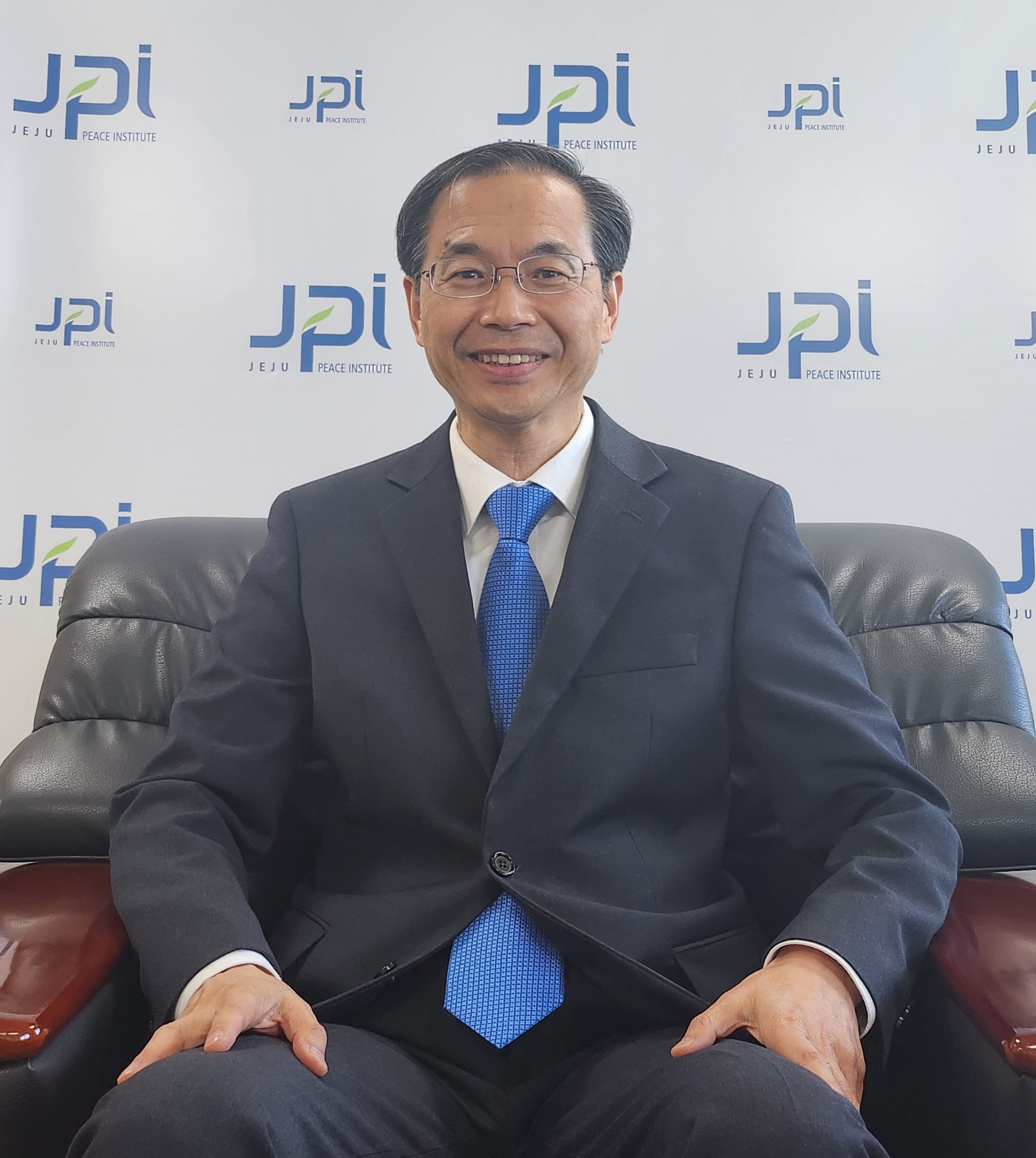
The Jeju Peace Institute specializes in researching peace and cooperation on the Korean Peninsula and Northeast Asia. The Jeju Peace Institute also hosts the annual Jeju Forum for Peace and Prosperity (formerly known as the Jeju Peace Forum).
Behind the establishment of the Jeju Peace Institute, there is a history of tragedy and hope. In 1947, in the early days of the Cold War, countless innocent lives were sacrificed and local communities were destroyed on Jeju Island due to the 4.3 incident. Because of the 4.3 tragedy, Jeju people came to yearn for peace more than anyone else. In 1990, when the Cold War was about to end, General Secretary Gorbachev and President Roh Tae-woo held a historic Korea-Soviet summit on Jeju Island. Watching the summit meeting held between the former enemies, discussing peace on the Korean Peninsula, Jeju Island foresaw its role as a forum for dialogue of peace.
In response to Jeju’s longing for peace, in 2005, 「Special Act on the Establishment of Jeju Special Self-Governing Province and the Development of Free International City」 was enacted, and Jeju Island was designated as an ‘Island of World Peace.’ By this law, the Jeju Peace Institute was established in 2006 with the joint funding of the Ministry of Foreign Affairs and the Jeju Special Self-Governing Province.
There are numerous national institutes in Northeast Asia studying their countries’ national interests. Still, not many institutes, especially private institutes, study the common interests of Northeast Asia. The Jeju Peace Institute is the only institute in Northeast Asia that hosts annual security dialogues such as the Jeju Forum to share and communicate research results with the international community.
On the Korean Peninsula, South and North Koreas are confronting each other while territory and history disputes continue in Northeast Asia. Furthermore, new security threats such as cyberattacks, climate change, and pandemics are emerging. In the Northeast Asia region, envisioning a theory that can bring peace and cooperation while practicing it is a challenging task for the Jeju Peace Institute as well. However, such a challenge is a noble mission the Jeju Island and our country have given to the Jeju Peace Institute. Our researchers will consider tension and conflict as a great stimulus and a vital research subject. We will work strenuously to develop ways to overcome them.
This year marks the 15th anniversary of the establishment of the Jeju Peace Institute. Based on the experience of the past 15 years, the Jeju Peace Institute intends to develop ideas and policies for peace and cooperation through more innovative research and ideas. Thank you.
Younghoon Kang
President of the Jeju Peace Institute
